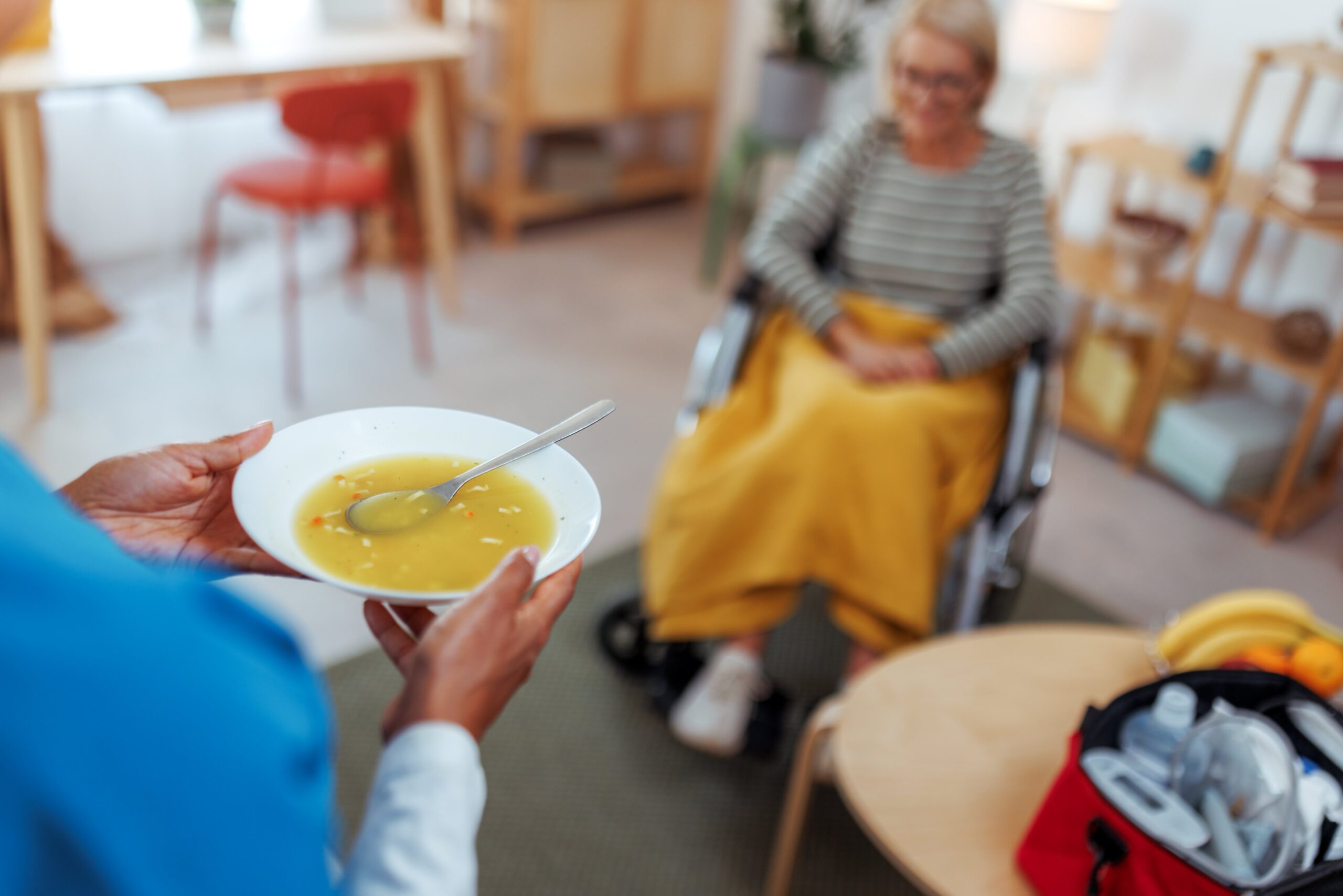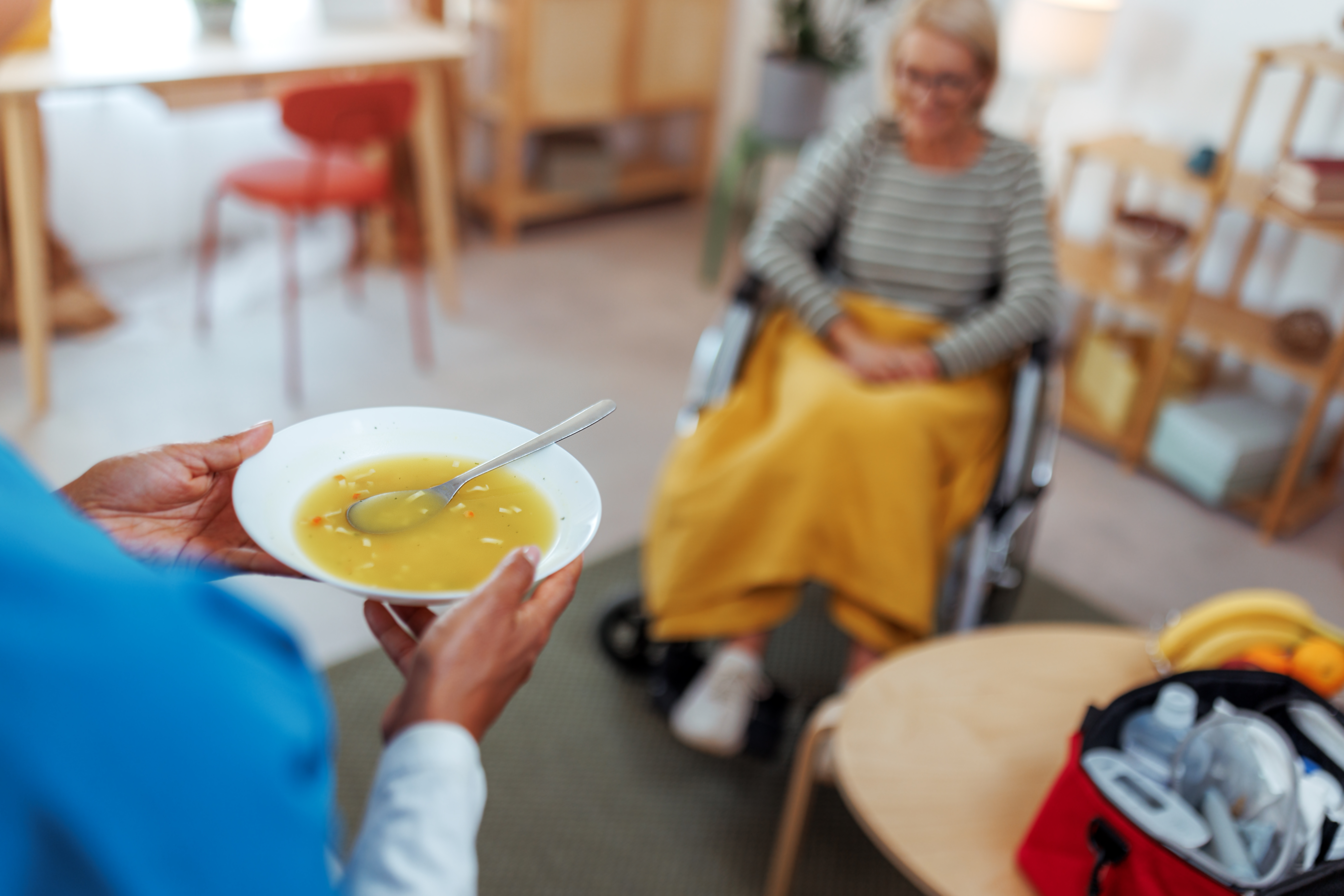The Role of Nutrition in Hospice Care: Maintaining Health and Comfort

 The Role of Nutrition in Hospice Care
The Role of Nutrition in Hospice Care
When a loved one enters hospice care, families often worry about their eating and drinking habits. Loss of appetite, dehydration, and the accompanying weight loss can be distressing to witness. However, changes in dietary needs are completely normal as the body prepares for the final stage of life. Learn about these changes to ensure you’re providing comfort rather than causing your loved one unnecessary stress.
Why Appetite and Thirst Decrease
Many factors contribute to reduced food and fluid intake in terminally ill people. This shift is a natural part of the body’s decline, not a sign of neglect or suffering. Here are the factors at play:
- Slowed metabolism: The body requires less energy as it focuses on essential functions rather than sustaining long-term life. A decreased appetite is the body’s way of adapting to its reduced energy needs.
- Fatigue and weakness: When all your loved one wants to do is rest, simple tasks like chewing and swallowing can feel exhausting. Eating food requires energy that the body simply doesn’t have.
- Nausea and vomiting: Illness, medications, and digestive changes can cause nausea and vomiting, making food unappealing. Strong smells, rich flavors, or just the sight of food may cause discomfort.
- Medication side effects: Pain relievers, anti-nausea drugs, and other medications sometimes cause dry mouth or changes in taste. When a favorite meal suddenly tastes metallic, bland, or unpleasant, it leads to further loss of appetite.
- Less efficient digestion: As organ function slows, large meals take longer to process, leading to a prolonged feeling of fullness. Also, some foods that were once easy to digest become harder for the body to handle.
- Difficulty swallowing: A condition called dysphagia makes swallowing painful and increases the risk of choking or aspiration. Your loved one may hesitate to eat under these conditions.
- Loss of thirst signals: The brain stops recognizing the need for fluids at the end of life, making dehydration seem more severe than it actually is.
The Pros and Cons of Artificial Nutrition
When someone stops eating or drinking, families may wonder if artificial nutrition—such as feeding tubes or IV hydration—is the right choice. While this seems like an effective way to nourish your loved one, it’s not always ideal in hospice care.
On the one hand, artificial nutrition may be appropriate for working around dysphagia, nausea, and vomiting, particularly if the individual is still feeling hungry or thirsty. On the other hand, feeding tubes and IV hydration can cause infections, fluid overload, and digestive issues. The body may be unable to process the nutrients properly, causing more discomfort than relief.
Hospice care focuses on dignity and comfort rather than prolonging life through artificial means. Consult with hospice providers to determine what’s best for your loved one.
Helpful Tips for Good Nutrition in Hospice
Eating and drinking don’t look the same for someone in hospice care as they did before illness took hold. But while appetite changes are normal, you can still make eating and drinking more enjoyable for your loved one with these minor adjustments:
- Suggest smaller portions less often: Don’t expect your loved one to eat three full meals a day while in hospice. Five or six small servings may be enough, even if it’s just a few bites at a time.
- Provide easy-to-eat options: Soft, bland foods are best. Ideas include soup, mashed potatoes, plain yogurt, scrambled eggs, vanilla pudding, and smoothies. Even baby food is often well tolerated. Hospice providers can offer guidance on what textures are safest.
- Offer favorite foods: If they crave ice cream for breakfast or a few swallows of soda before bed, let them have it. At this stage, enjoyment matters more than nutritional value.
- Spread out fluid intake: Small sips of flavored water, juice, or herbal tea may be all the hydration your loved one needs. It’s better to sip lightly throughout the day rather than drink a whole glass with a meal. Also, drinking from a straw or through a lidded cup is easier for some people, so make these options available whenever possible.
- Avoid force-feeding: Forcing food or fluids can lead to discomfort, bloating, nausea, choking, or aspiration pneumonia. It also causes emotional distress for the person, who may feel pressured to eat when their body is telling them otherwise. Gentle encouragement is fine, but respect when they say they aren’t hungry.
- Time meals strategically: Opt for times when the person is pain-free and has the most energy, such as in the morning, mid-afternoon, and shortly after taking pain medications.
- Create a pleasant mealtime atmosphere: Sit together, play music, watch a favorite TV program, or hold hands to make meals more comforting.
- Offer lip balm or hard candy: Dry mouth makes eating uncomfortable. Keeping the lips and mouth moist improves comfort and makes swallowing easier. Supply the person with lip balm, along with mints, hard candy, or ice chips to suck on.
- Avoid metal cutlery: The common complaint of a metallic taste is only heightened by metal utensils and tumblers. Opt for plastic, ceramic, and glass instead.
Compassionate End-of-Life Care
At Agape Hospice NW, we know how hard it is to watch a loved one eat and drink less, but our compassionate, attentive team is here to offer guidance and support. We are a locally owned hospice provider that prioritizes meeting every patient’s needs with dignity and respect. If you have questions about hospice care in Portland, OR, please contact us today. We would be honored to help you navigate your loved one’s end-of-life journey.


